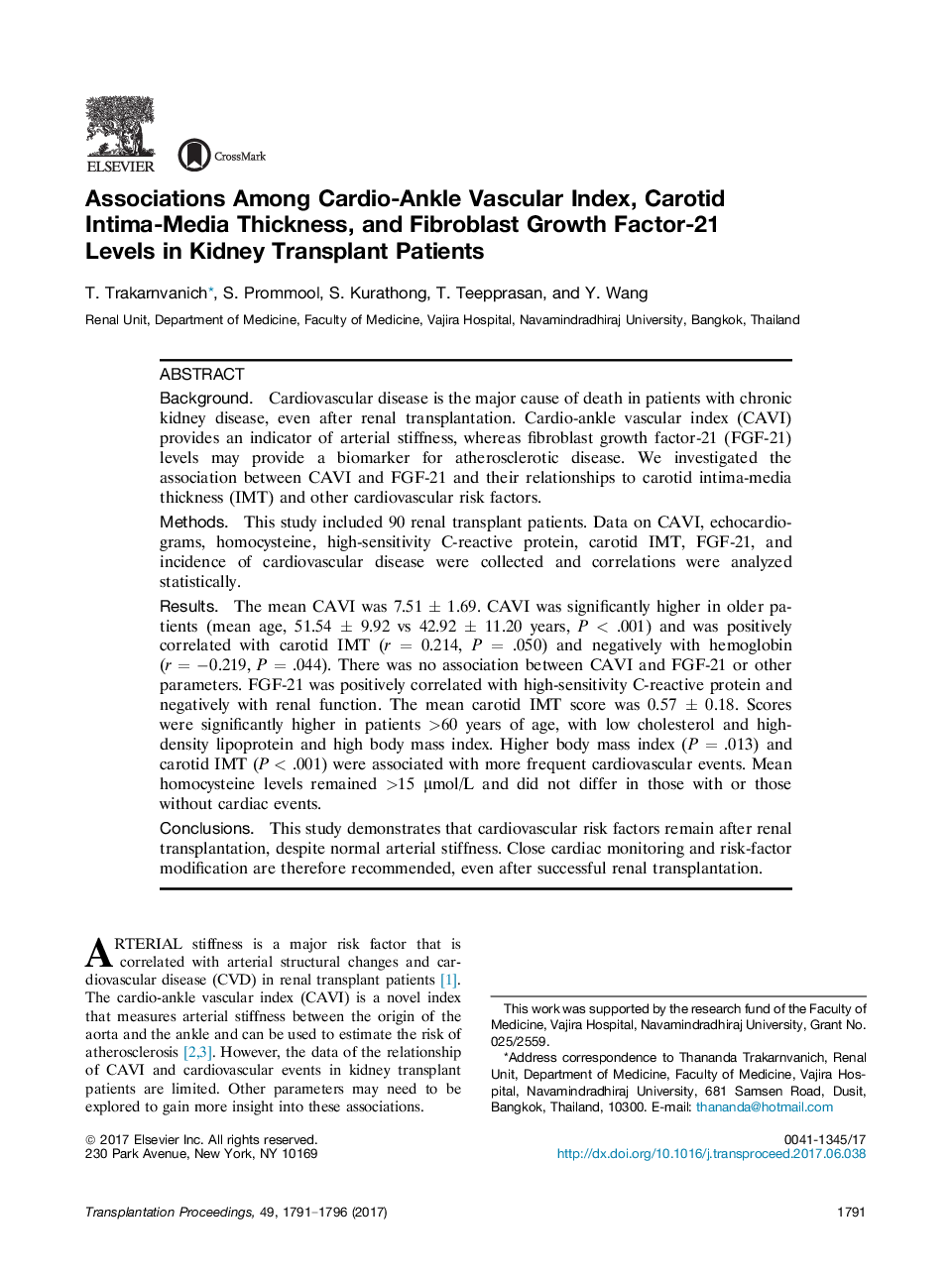| کد مقاله | کد نشریه | سال انتشار | مقاله انگلیسی | نسخه تمام متن |
|---|---|---|---|---|
| 5728632 | 1610669 | 2017 | 6 صفحه PDF | دانلود رایگان |
- CAVI is a parameter that is used to measure atherosclerosis and can be used to assess arterial stiffness in renal transplant patients.
- FGF-21 is a potential candidate that can be used to represent cardiovascular risk; however, it is not related to CAVI in renal transplant groups.
- Serum tHcy levels remain high after renal transplantation; patients should therefore continue to be monitored for CVD even after renal transplantation.
BackgroundCardiovascular disease is the major cause of death in patients with chronic kidney disease, even after renal transplantation. Cardio-ankle vascular index (CAVI) provides an indicator of arterial stiffness, whereas fibroblast growth factor-21 (FGF-21) levels may provide a biomarker for atherosclerotic disease. We investigated the association between CAVI and FGF-21 and their relationships to carotid intima-media thickness (IMT) and other cardiovascular risk factors.MethodsThis study included 90 renal transplant patients. Data on CAVI, echocardiograms, homocysteine, high-sensitivity C-reactive protein, carotid IMT, FGF-21, and incidence of cardiovascular disease were collected and correlations were analyzed statistically.ResultsThe mean CAVI was 7.51 ± 1.69. CAVI was significantly higher in older patients (mean age, 51.54 ± 9.92 vs 42.92 ± 11.20 years, P < .001) and was positively correlated with carotid IMT (r = 0.214, P = .050) and negatively with hemoglobin (r = â0.219, P = .044). There was no association between CAVI and FGF-21 or other parameters. FGF-21 was positively correlated with high-sensitivity C-reactive protein and negatively with renal function. The mean carotid IMT score was 0.57 ± 0.18. Scores were significantly higher in patients >60 years of age, with low cholesterol and high-density lipoprotein and high body mass index. Higher body mass index (P = .013) and carotid IMT (P < .001) were associated with more frequent cardiovascular events. Mean homocysteine levels remained >15 μmol/L and did not differ in those with or those without cardiac events.ConclusionsThis study demonstrates that cardiovascular risk factors remain after renal transplantation, despite normal arterial stiffness. Close cardiac monitoring and risk-factor modification are therefore recommended, even after successful renal transplantation.
Journal: Transplantation Proceedings - Volume 49, Issue 8, October 2017, Pages 1791-1796
